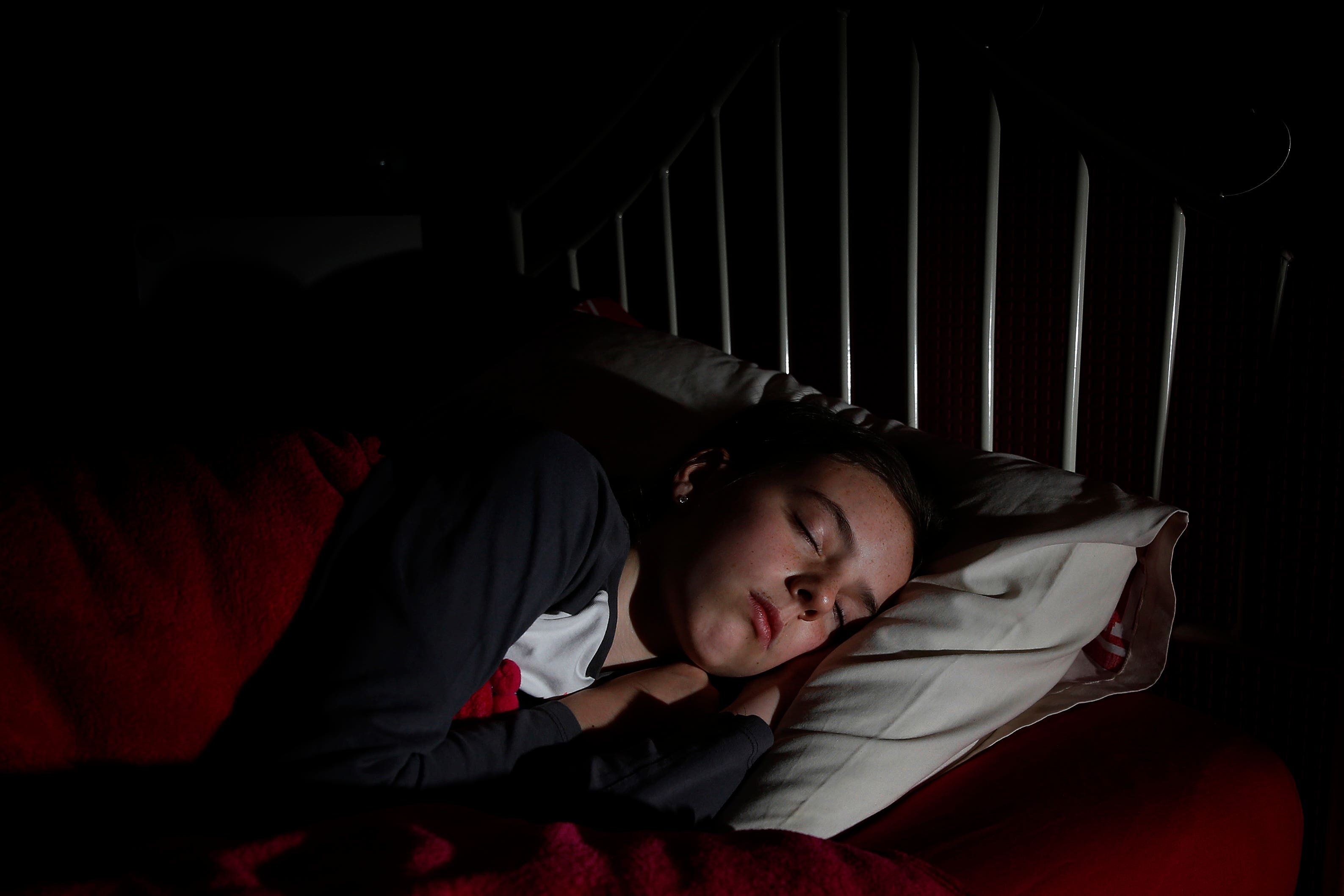Lack of sleep could make you go blind, new study warns
Too much or too little shut-eye can increase the risk of developing glaucoma, scientists say

Poor sleep could make you go blind, according to a new study.
Too much or too little shut-eye, as well as experiencing daytime sleepiness, insomnia and snoring, can all increase the risk of developing glaucoma, say scientists.
Glaucoma is a common eye condition where the optic nerve, which connects the eye to the brain, becomes damaged. It can lead to complete blindness if left untreated.
The disease is a leading cause of blindness and will likely affect around 112 million people worldwide by 2040.
Researchers studied 409,053 people from a UK Biobank. The group were aged between 40 to 69 when they were recruited in 2006-2010, and had provided detail of their sleeping behaviours.
Scientists then analysed the information on sleep patterns as well as background information such as age, sex, lifestyle, weight, ethnicity, educational attainment and where they lived.
After monitoring the participants for just over 10.5 years, 8,690 cases of glaucoma were identified.
Those with glaucoma tended to be older and were more likely to be male. They also were more likely to be smokers, and to have high blood pressure or diabetes than those who weren’t diagnosed with the disease.
The study found that short or long sleep, insomnia, snoring and frequent daytime sleepiness increased the chances of developing the disease.
Those who slept above or below seven to nine hours were eight per cent more likely to suffer from glaucoma, while those with insomnia were 12 per cent more likely.
People who snored had a four per cent greater chance and people who were often sleepy in the day had a 20 per cent greater risk of developing the degenerative disease.
The study, published in the medical journal BMJ Open, found a plethora of potential explanations for these findings.
The pressure on the eye when lying down is a key factor in the development of glaucoma, as is repeatedly taking in low levels of oxygen, which is caused by snoring and sleep apnoea. This can damage the nerve in the eye.
Insomnia can also play a part. The sleep hormones of those suffering from insomnia are imbalanced, which can affect the eye. Depression and anxiety, which often go hand in hand with insomnia, can also increase internal eye pressure.
Researchers also acknowledge the possibility that glaucoma itself could influence sleep patterns, rather than the other way round.
The findings underscore the need for sleep therapy in people at high risk of the disease, as well as eye checks among those with chronic sleep disorders to check for early signs.
Dr Huan Song, a professor at West China Biomedical Big Data Center at West China Hospital Sichuan University, Chengdu, Sichuan, China, and one of the authors of the study, said: “As sleep behaviours are modifiable, these findings underscore the necessity of sleep intervention for individuals at high risk of glaucoma and potential ophthalmologic screening among individuals with chronic sleep problems to help prevent glaucoma.
“The findings underscore the need for sleep therapy in people at high risk of the disease as well as eye checks among those with chronic sleep disorders to check for early signs of glaucoma.”
The study was funded by the National Science Foundation of China.
Subscribe to Independent Premium to bookmark this article
Want to bookmark your favourite articles and stories to read or reference later? Start your Independent Premium subscription today.

Join our commenting forum
Join thought-provoking conversations, follow other Independent readers and see their replies